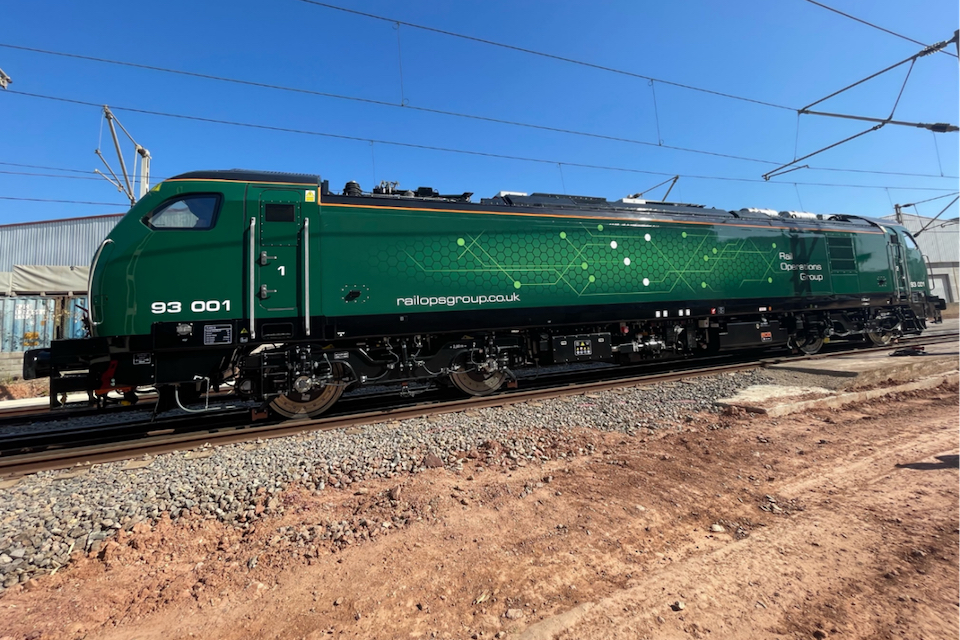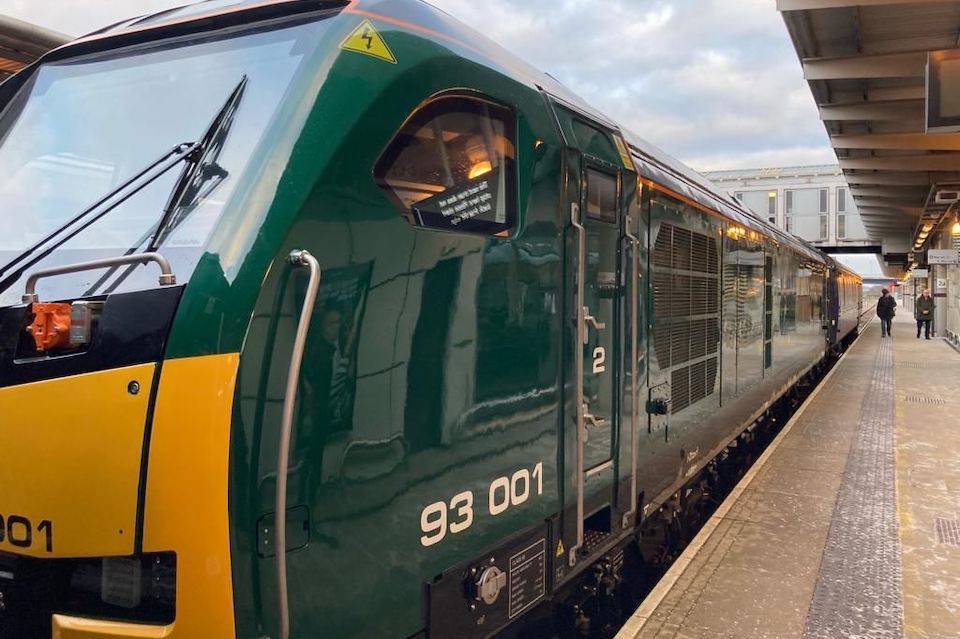Tri-mode traction is a freight reality for UK Rail Operations Group

Rail Operations Group has unveiled their groundbreaking tri-mode Class 93 locomotive. It’s a significant milestone for the UK rail industry. The specialist carrier, also known as Rail Operations UK Limited, has taken delivery of its highly anticipated tri-mode Class 93 locomotive, delivered from the manufactures Stadler. Designated as 93001, this revolutionary locomotive marks the first of its kind to run on the UK mainline, boasting the ability to operate under electric, battery, and on-board diesel power.
The arrival was marked as the locomotive made its way to Crewe for final static testing. The unit requires a series of examinations before being authorised to run under its own power. The delivery from Stadler in Spain represents the culmination of several years of work for the ROG team. It’s anticipated that the new locomotive and its stable mates will be only halfway through their working life when the UK government mandate outlawing ‘diesel only’ operations comes into effect in 2040.
Advanced specifications promise to modernise operations
Britain is in line with most of the rest of the world, with stringent requirements to protect the climate. The government has mandated decarbonisation targets, including a ‘net-zero’ deadline of 2050 (preceded by the diesel-only mandate in 2040). Transport has been singled out as a major contributor, even though rail freight is considered to be among the most environmentally friendly parts of the logistics sector. Nevertheless, all rail freight operators are making efforts to go greener, and that includes seeking ways to reduce or even remove fossil fuel consumption from their operations. Innovations like the Class 93, which can run emissions-free, even on its ‘last mile’ tasks, are considered a breakthrough for the sector.

“The Class 93 fleet [has an] array of green credentials, ” said David Burley, CEO of Rail Operations Group. “[They] will allow us to lead the way in supporting the rail industry in delivering its decarbonisation targets.” The locomotive, with its advanced specifications, promises to modernise various aspects of UK train operations and opens avenues for diversification and development in new markets.
Decarbonising the wider transport piece
The tri-mode capabilities of the Class 93 locomotive are expected to play a pivotal role in reducing CO2 emissions for rail freight. ROG also have ambitions to offer the locomotives for passenger transport services. That market may open up in the near future. There are potentially several secondary lines where full electrification may prove uneconomic, but running through services on diesel power ‘under the wires’ will become increasingly undesirable. The versatile technology on board the marque allows for a variety of configurations.

ROG acknowledges the challenges facing the rail industry but highlights the Class 93 locomotive as a brighter beacon of positive news. “Our industry may well be in a state of flux currently with huge questions regarding industry leadership, decision making, strategy, and rolling stock”, they said. “This is some good news. The first small step is decarbonising loco-hauled traffic not only within the industry but also decarbonising the wider transport piece.”






Multimode power, yes!
Resilient, redundant (robust) modes, all but railways…, handsomely are rewarded, by willingly paying clients.
Single power, by wires, was optimal 100 years ago, but now devastatingly costly, as adding to risks at supply chain – and to logistic costs!
(Just a minority now affords luxury of not bothering about On Time supplies…)